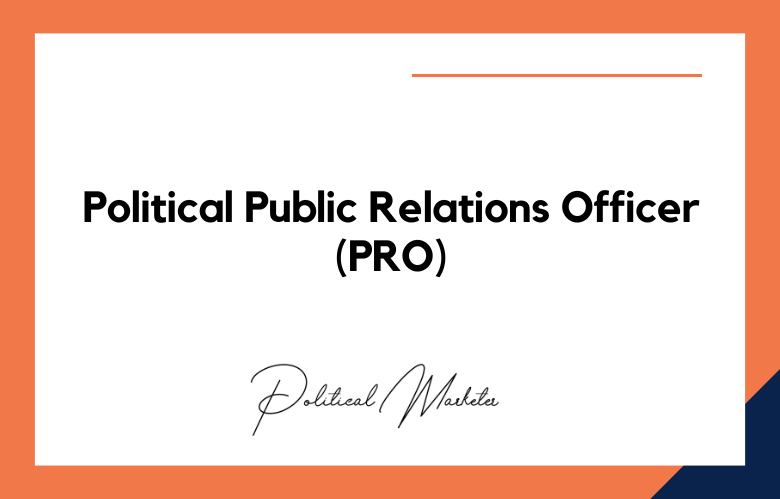When it comes to politics, sometimes it seems like every decision is motivated by the desire to satisfy a particular group of voters – or, as it’s often put, to throw them a tasty piece of “red meat.” But what exactly does that mean, and is it a sound political strategy? We’ll take a closer look at why politicians might focus on well-marbled policies and the potential risks and rewards of doing so.
First, let’s define our terms. “Red meat” is a symbolic way of referring to policies or positions that are highly polarizing and designed to appeal to a specific group of voters. It’s often used to describe stances on hot-button issues like abortion, gun control, or immigration.
These policies are often controversial and have the potential to spark strong emotions and reactions from voters on both sides of the issue. So, why do politicians choose to use red meat to woo voters?
Grill the Opposition: Red Meat’s Role in Political Strategy
In today’s cut-throat political sphere, strategists and campaigners will leverage every possible resource to give their candidate the edge. One such resource that has taken on an increasingly prominent role in recent years is red meat. No, not the kind you put on your grill – we’re talking about controversial, emotionally charged talking points that will get people fired up and engaged on the issues.
The concept of “throwing red meat” to a base of supporters is nothing new, of course. Politicians have used this tactic for as long as there has been politics. However, with the rise of social media and the 24-hour news cycle, the importance of this approach has only grown.
In an era where messages can spread faster and more comprehensively, a well-placed piece of red meat can be the key to energizing a base, drumming up support, and shifting the narrative in a campaign’s favor.
Rare or Well-Done? Choosing a Political Path for Red Meat Issues
Red meat issues remain highly controversial within the political arena, as policymakers face the challenge of choosing between divergent demands. Some voices advocate for stricter regulations on the meat industry to address environmental and health concerns associated with red meat consumption.
In contrast, others defend the traditional American values of freedom and market choice. Therefore, the question arises: should we opt for a rare or well-done approach to red meat politics?
One argument for rare – or, in other words, limited – regulations on red meat derives from the decisive role of the meat industry in the US economy. The beef, pork, and lamb sectors contribute significantly to rural job creation and export revenues, especially during economic uncertainty.
Furthermore, detractors of excessive regulation claim that attempts to cut down on meat consumption infringe upon individual liberties and ignore the cultural significance of meat in many American diets.
T-Bone Tactics: How Red Meat Can Influence Political Campaigns
Red meat has long been a staple in the American diet and Texan culture, with its iconic T-bone steak being a beloved dish for many. However, recent studies have shown that red meat can have a significant impact on political campaigns and voter behavior.
According to a study conducted by researchers at the University of California, red meat consumption is strongly correlated with conservative political beliefs and tendencies. The study found that individuals who consume high amounts of red meat are more likely to support conservative candidates and values and may be less receptive to progressive messaging.
Cooking up Controversy: The Politics of Red Meat Consumption
The consumption of red meat has been a topic of heated debate in recent years. On one hand, supporters argue that red meat is a valuable source of protein and nutrients and has been consumed by humans for centuries. However, opponents say that the production and consumption of red meat are unsustainable and can negatively impact health, the environment, and animal welfare.
Studies have indicated that excessive red meat consumption may increase the risk of various health problems, such as heart disease, cancer, and type 2 diabetes.
Furthermore, the production of red meat is associated with greenhouse gas emissions, deforestation, and water pollution. Many animal welfare advocates also argue that the conditions in which animals are raised for meat production can be cruel.
Medium-Rare Mediations: Addressing Red Meat Issues in Politics
Red meat has been a controversial topic in politics and public health for years. The consumption of red meat has been linked to various health concerns, including increased risk of heart disease, stroke, and certain types of cancer. The meat industry has been criticized for its environmental impact and treatment of animals.
However, despite these concerns, red meat remains a popular food choice for many Americans. It is a significant part of our cultural identity and plays a crucial role in our economy. Therefore, it is essential to address these issues in a way that respects both public health and the interests of the meat industry.
Serving Votes on a Platter: Harnessing Red Meat for Political Success
It is no secret that in today’s political climate, winning elections requires more than just a well-crafted message. Political campaigns must appeal to the emotions of voters, and one of the most effective ways to do so is through the use of red-meat rhetoric.
Red meat rhetoric refers to the use of language that is emotionally charged and designed to appeal to a voter’s deepest fears and desires. It is a form of communication that often relies on hyperbole, exaggeration, and sometimes outright falsehoods to create an emotional response in the listener.
However, red meat rhetoric is not just about using inflammatory language. It is also about the values and beliefs that political candidates and parties espouse. Successful campaigns use red-meat rhetoric to connect with voters on a gut level and reinforce the values and beliefs that their base holds dear.
Steak and Statecraft: The Art of Political Maneuvering in Red Meat Debates
The topic of Steak and Statecraft is a fascinating one, as it delves into the intricate and nuanced world of political maneuvering in the context of one of the world’s most beloved foods – red meat. At the heart of this debate is the question of whether or not red meat is healthy for consumption and what the implications of its consumption may be for individual health, as well as for environmental sustainability and global food security.
One of the critical challenges in this debate is the difficulty of achieving consensus on the medical and scientific facts surrounding red meat consumption.
While some studies suggest that red meat can be a valuable source of protein and other nutrients, others point to the risks associated with high consumption – including higher risks of heart disease, certain cancers, and other health problems.
Juicy Campaign Promises: Leveraging Red Meat Issues for Political Gain
As election season heats up, politicians are working hard to rally support and gain votes by tapping into hot-button issues people care about. One way they do this is by making promises on “red meat” issues – those topics that generate intense emotional reactions and capture voters’ attention.
Red meat issues vary depending on the region, demographics, and individual concerns of voters. However, some topics frequently used as red meat issues include immigration, gun control, abortion, national security, and healthcare. These issues often trigger intense feelings in voters and can sway their decisions on election day.
However, while red meat issues may help candidates generate excitement and enthusiasm, promising solutions to these issues can be challenging. Many of these topics are complex and require nuanced strategies to address effectively.
Conclusion:
Red meat policies can be a powerful tool for politicians, but they must be used judiciously and with an understanding of the potential risks and rewards. By focusing on essential issues to particular voting blocs while avoiding overly polarizing stances, candidates can still energize their base without turning off other voters.
Well-timed red meat policies can be a way to differentiate themselves from their opponent and solidify their image as strong leaders willing to take a stand on important issues. By understanding these nuances, politicians can create well-marbled policies that satisfy their base without sacrificing their broader appeal.
Well-marbled policies can be a powerful tool for politicians looking to build a winning political strategy. By tapping into the emotional and symbolic values of their core supporters, politicians can create policies that are seen as particularly urgent or essential, galvanizing their base and inspiring them to action.
However, it’s important to remember that well-marbled policies come with risks, particularly regarding deeply divisive issues. To be successful, politicians must balance these policies with a broader message that appeals to a wide range of voters, creating a strategy that is both compelling and electable.
Call: +91 9848321284
Email: [email protected]
Red Meat and Political Strategy: How Controversial Policies Stir Voters and Shape Power Plays – FAQs
What are “well-marbled” policies in political strategy?
They refer to policy proposals that appear rich and attractive but are often layered with symbolism or rhetoric rather than substantive change—designed to please different voter segments simultaneously.
What does “red meat” mean in a political context?
“Red meat” refers to aggressive, emotionally charged statements or policies aimed at energizing a party’s base, often used for short-term support or applause.
How are well-marbled policies different from red meat politics?
While red meat politics focuses on emotional and ideological appeal, well-marbled policies combine appearance and complexity to look substantive without delivering radical shifts.
Why do politicians use red meat rhetoric?
To excite loyal voters, dominate media cycles, distract from policy failures, or reinforce identity-based political divisions.
What is the strategic value of symbolic policies?
Symbolic policies communicate values and intent more than they produce change—often used to maintain coalitions or demonstrate alignment with public sentiment.
Can red meat strategies be harmful in the long term?
Yes. While they may boost short-term popularity, they can polarize society, erode institutional trust, and make bipartisan governance harder.
How do politicians balance symbolic and substantive messaging?
They often mix both—using symbolic red meat for emotional appeal and well-marbled proposals to suggest seriousness and vision, even if actual implementation is weak.
What role does media play in amplifying red meat politics?
Media often gravitates toward sensationalism, giving more airtime to controversial or dramatic statements than nuanced policy discussions.
Are well-marbled policies deceptive?
Not necessarily deceptive—but they can be ambiguous or designed to create broad appeal without risking deep accountability.
What are examples of red meat political tactics?
Culture war rhetoric, border security soundbites, public condemnations of opposition, and “law and order” slogans used for base mobilization.
How do voters respond to red meat versus substance?
Base voters may respond emotionally to red meat, while swing or moderate voters often seek concrete plans—making campaign tone a delicate balancing act.
What risks do candidates face when using only red meat tactics?
They risk alienating centrists, being seen as divisive or performative, and limiting their post-election governing coalition.
Can well-marbled policies still lead to meaningful reform?
Yes—if the layered approach includes both symbolic framing and serious implementation strategy.
What’s the difference between performance politics and governance?
Performance politics focuses on appearances and public theater; governance emphasizes results, negotiation, and execution of policy.
Do red meat tactics work better in certain political systems?
Yes. Populist or personality-driven systems with weak institutions may reward red meat tactics more than stable, policy-focused democracies.
How do political consultants craft red meat messaging?
They analyze base emotions, fears, and values, then use targeted language, slogans, and imagery to trigger strong reactions.
Can social media escalate red meat strategies?
Absolutely. Algorithms reward emotionally charged content, helping red meat messaging go viral, especially among echo chambers.
What are the ethical concerns with using symbolic-only policies?
Such strategies can mislead voters, delay real solutions, and create disillusionment with the democratic process.
How can citizens differentiate between substance and symbolism?
By asking: Is there a clear implementation plan? Is funding allocated? Are measurable outcomes defined? Who benefits beyond the announcement?
What’s the future of red meat and well-marbled politics?
As media cycles speed up and polarization grows, both may become more common—though public demand for authenticity and accountability may push back.









